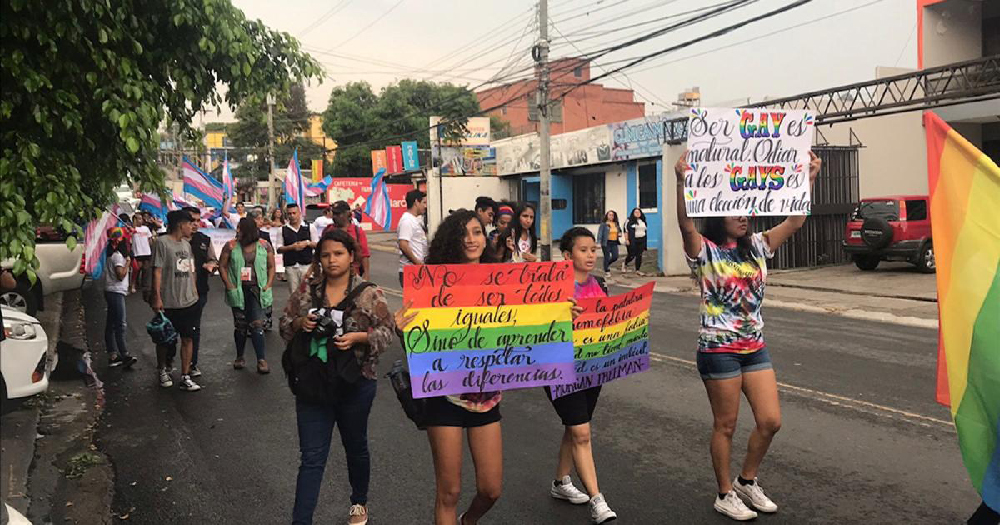Lockdown in Honduras is exacerbating violence against LGBT+ people, and trans women in particular, according to the Arcoiris LGBT Association.
The country went into lockdown on March 20 and on that same day constitutional guarantees were suspended – making it incredibly difficult for those with little resources to access essentials such as food and water.
The Sexual Diversity Committee said LGBT+ people are: “disproportionately suffering from the ravages of the pandemic and its consequences due to their historic social, labour and economic exclusion under the Honduran state.”
Donny Reyes – the coordinator of the Arcoiris Association – said the main problem is that the LGBT+ community are not considered a priority group in the distribution of government aid. As a result, Arcoiris are finding it incredibly difficult to give out important supplies like food, water and biomedical equipment such as soap and face masks.
Health services are also more difficult to visit now. For those living with HIV/Aids, this is particularly concerning due to their compromised immune system.
“Our HIV positive members do not have the means to travel to pick up their medicines, firstly due to the lack of transportation, and secondly because the trans women do not have identification and it’s very risky to leave the house like this,” a spokesperson for the Arcoiris Association said.
“The few women who manage to get their medication can’t take it in the end, because they need to be taken with food, and the vast majority of them don’t have access to food right now.”
That’s not the only issue trans women in Honduras are facing though. Due to the lack of work opportunities, many trans women must turn to sex work. In the last few weeks, 10 trans women have been attacked by either the national police, soldiers or private security agents.
One trans women who reticently suffered an attack, Adriana (not her real name), spoke out against the violence she faced in the country’s capital, Tegucigalpa.
“They take advantage of the fact that we are violating the lockdown order to threaten us and hit us. But we need to pay our rent and buy food. Going out on the street is our only option,” she said.
So far this year, six members of the LGBT+ community have already been murdered in Honduras. This violence is not new though – over 315 hate crimes have been reported in the country over the last ten years.
© 2020 GCN (Gay Community News). All rights reserved.
Support GCN
GCN is a free, vital resource for Ireland’s LGBTQ+ community since 1988.
GCN is a trading name of National LGBT Federation CLG, a registered charity - Charity Number: 20034580.
GCN relies on the generous support of the community and allies to sustain the crucial work that we do. Producing GCN is costly, and, in an industry which has been hugely impacted by rising costs, we need your support to help sustain and grow this vital resource.
Supporting GCN for as little as €1.99 per month will help us continue our work as Ireland’s free, independent LGBTQ+ media.

comments. Please sign in to comment.